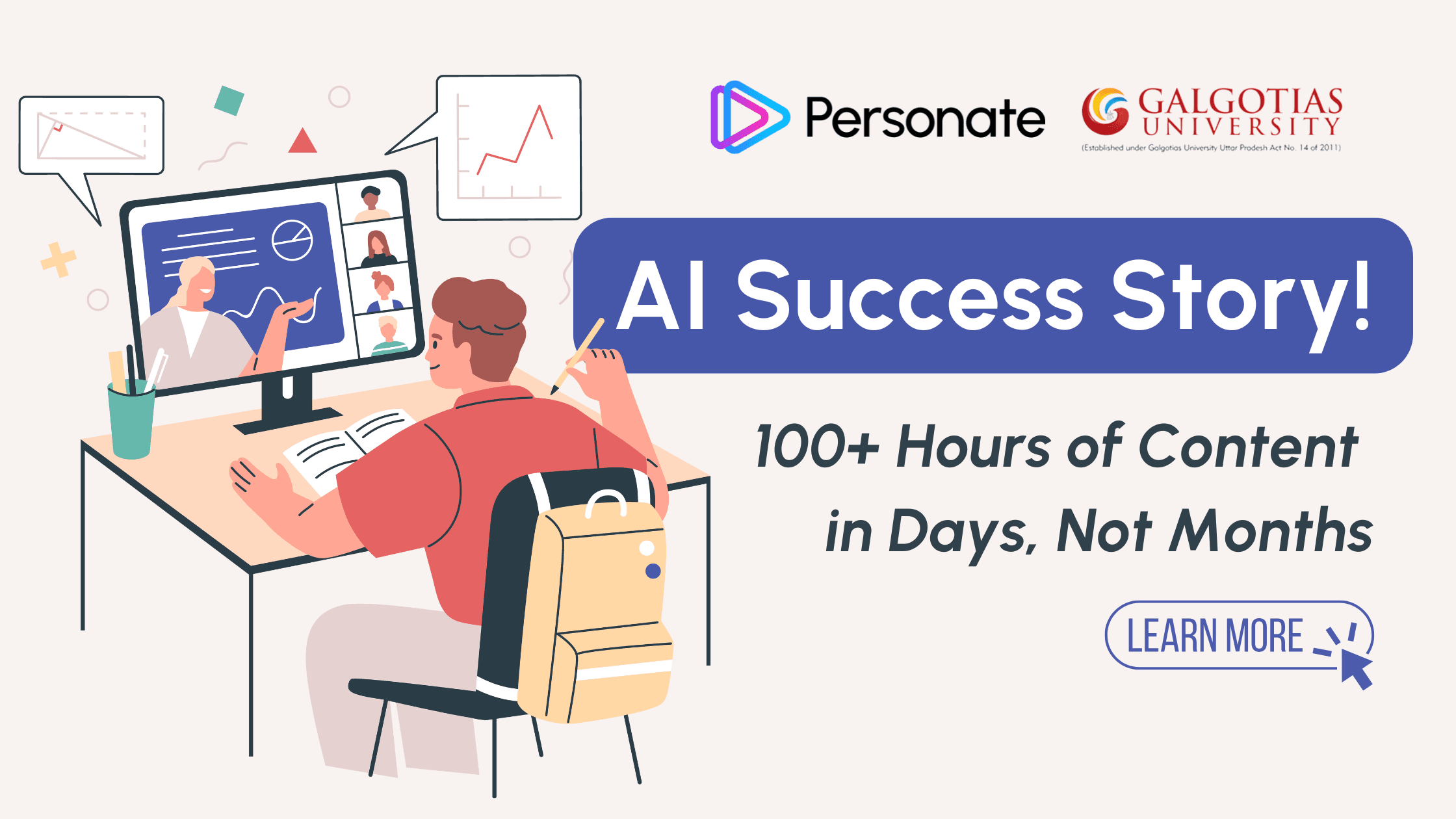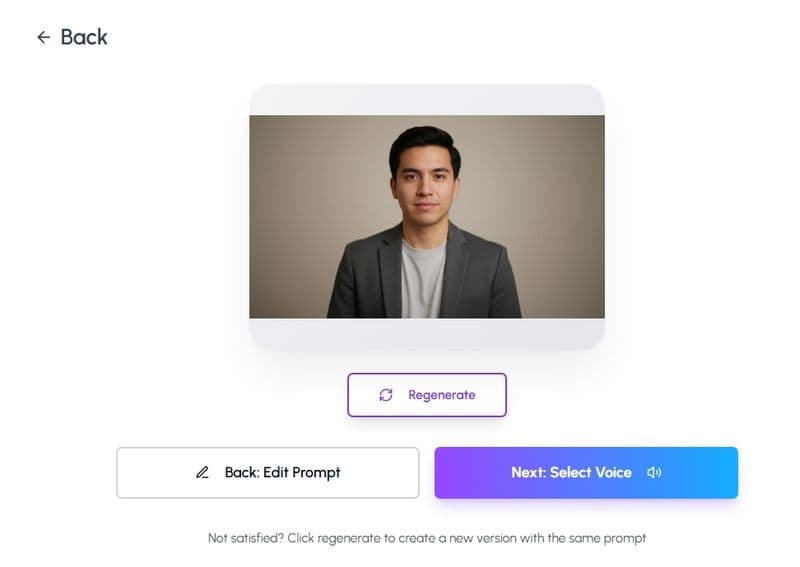
Education is evolving quickly, and universities everywhere face mounting pressure to provide high-quality, accessible online courses. But how can institutions produce thousands of hours of engaging content without overwhelming their faculty? This was precisely the challenge Galgotias University faced. They needed to create over 100 hours of e-learning content every month—while managing faculty availability, presentation skills, and scheduling conflicts.
That is when they discovered Personate AI.
Personate AI did not just streamline production; it enabled Galgotias University to scale up content creation rapidly without placing extra demands on professors. What would have taken weeks of recording, editing, and manual work now became possible in just a fraction of the time. Here is how Galgotias University used Personate AI to set a new standard for e-learning.
The challenge of traditional production: a time and resource drain
In a traditional setting, Galgotias University professors would have needed 4 to 8 hours to produce just one minute of video. Every lecture would have required a major time commitment from faculty, who could easily spend days recording and editing each course. Beyond the time, recording hundreds of hours required parallel involvement from multiple professors and team members. Each professor would need to coordinate their video recording sessions around existing offline classes, resulting in complex scheduling challenges and a demand on resources. Scaling this process to meet the hundreds of hours required for a full curriculum would stretch timelines to six months or more—an impractical demand. Moreover, not all professors are comfortable on camera or have extensive presentation skills, which could potentially affect content quality.
Adding to the pressure, launching online courses requires institutions to meet University Grants Commission (UGC) guidelines. These guidelines specify that most e-learning materials must be prepared in advance of the course launch. For undergraduate programs, this means that materials for the first three semesters must be complete. For postgraduate programs, the first year’s content is required. Without Personate AI, meeting these regulatory standards would have required a vast commitment of time and resources.
Then, Personate AI offered a breakthrough solution.
Why Galgotias chose Personate AI: faster, smarter, and more impactful
Personate AI provided Galgotias with a fresh approach to e-learning content production, saving time, reducing on-camera demands for faculty, and helping meet regulatory standards. Instead of having professors record each lecture, Galgotias could transform PowerPoint slides directly into video lessons, complete with lifelike AI professor avatars of real professors delivering the material. Here is how Personate made the difference:
Lightning-fast production: With Personate AI, Galgotias reduced production time by nearly 90%. Now, each minute of video takes only about 10 minutes to produce, allowing hundreds of hours of content to be completed each month in just days.
Enhanced language capabilities: Personate’s AI delivers content in over 50 languages. This feature enabled Galgotias to reach a broader audience without requiring faculty to create multiple versions of each lecture.
All-in-one, streamlined platform: Personate’s API-powered automation simplified every step, from script creation to final rendering. With everything handled in one platform, faculty could focus on crafting quality content instead of managing the production process.
Real impact: how Personate AI transforms the learning experience
The efficiency gains are significant, but the impact goes beyond time savings. Each AI professor avatar offers a familiar face and voice of the real-life professor, helping students feel a connection with their virtual instructors, even in a digital format. Furthermore, the platform’s ability to provide accurate, natural translations allows Galgotias to expand access for international students, creating an inclusive learning environment without extra demands on faculty.
Traditional video production vs. Personate AI: a quick comparison
Aspect | Traditional Video Production | With Personate AI |
Time to Produce 1-Minute Video | 4 to 8 hours | 10 minutes |
Monthly Production Capacity | 100 hours in several months | 100+ hours per month |
Professor Involvement | 40 professors, heavy commitment | Minimal involvement needed |
Translation & Voice Quality | Manual, limited language options | Automated in 50+ languages, natural voices |
Workflow Efficiency | Multiple teams needed | Unified, fully automated platform |
Support Availability | Limited support options | 24/7 real-time support |
E-learning and UGC compliance: meeting new regulations with ease
With recent UGC guidelines, educational institutions must have their e-learning materials ready in advance before launching online programs. For undergraduate programs, content for the first three semesters must be complete, and for postgraduate programs, the first year’s content must be fully prepared. Personate AI enabled Galgotias University to meet these regulatory requirements quickly by creating e-learning materials at scale, without the strain of traditional production methods.
Leading the future of education
Galgotias University’s story shows how adaptive technology can overcome traditional barriers in education. By simplifying production, Personate AI enabled Galgotias University not only to meet UGC requirements, but also to create a more engaging experience for students around the world. With AI-driven content creation, colleges can now deliver top-quality digital learning efficiently, allowing faculty to focus on what they do best: teach.
Is your institution ready to set a new benchmark in digital education? Book a demo today to see how Personate AI can support your e-learning goals, or reach out at hello@personate.ai.
Disclaimer: This content reflects our perspective on AI-assisted education tools. It is intended for informational purposes only and should not be used to form any opinions regarding educational or AI content policies.
Learn how Personate AI supports education aligned with NEP 2020 and discover actionable strategies to create engaging online courses with AI in our step-by-step guide.


